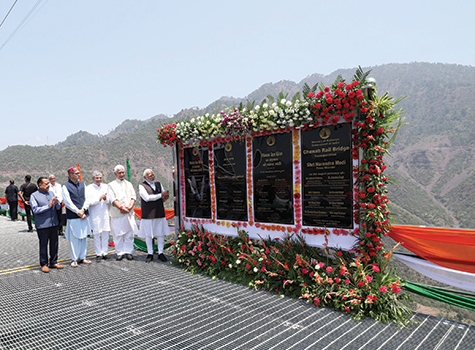Saathee’s editor and I have been good friends for over 33 years. Back in the early ’80s, we took turns running the news desk at a busy local paper and got an appreciation for deadlines. At some point, the negatives and plates had to be made, and the presses had to roll. So when I missed deadline three days ago, it was an anomaly. Usually, I just made it, proofreading the column sitting in a McDonald’s parking lot, or some equally unromantic location for scribes.
I blame my wife. The idea had been taking shape in my head for several weeks, as the Chilcot report surfaced, raking British PM Tony Blair over the coals over the Iraq war fiasco; followed by the release of 28 pages of the 9/11 report questioning Saudi Arabia’s role in the 9/11 attacks.
I had planned on writing much about what has brought us to this fearsome time of terror, with Bangladesh, Turkey, Pakistan, Iraq, France, the US, all suffering at the hands of a mysterious group that wants to kill innocents. I wanted to write about 1949, when a year after the CIA was created, Syria came into the organization’s crosshairs because of a refusal to let a Trans-Arabian oil pipeline come through from Saudi Arabia into the Lebanese coast. I wanted to write about Ambassador Joseph Kennedy, who warned the US back in 1957 to stop intervention in the Middle East. I wanted to write about the then CIA chief Allen Dulles, who convinced the Eisenhower administration that fundamentalist puppets and brutal dictators were the answer to keeping the Mideast out of Marxist hands. I wanted to know why American politicians always remain in bed with Saudi sheikhs.
But that die was cast way before most of us were even born, and I spent my childhood listening to my father and other diplomats (including Americans) snickering about how the CIA was responsible for even your kid falling off his bicycle anywhere in Asia or the Mideast. Well, after Freedom of Information Act requests opened up access to Congressional meetings dating back to the 1950s, one has to wonder if the man on the street in Damascus, Baghdad, Tehran, or Karachi really knew something the American public never suspected. From a few million bucks in a suitcase to start local unrest, to $2.2 trillion to fight the Iraq war, the so-called military-industrial complex had some agenda.
When the Soviets invaded Afghanistan in 1979, a fundamentalist/dictatorial mindset had already been put into motion with a coup in Pakistan. Objective: to push back the Communists at all costs, starting with a CIA war. The Shah of Iran, a US-propped puppet, was toppled by a radical Islamic regime; the US pumped billions into its puppet Saddam Hussain in the 1980s because he was a secular brute who would keep the rogue Iranians in check. After 9/11, the US attacked Iraq expecting to find what it had sold Iraq a few decades earlier. A half million men strong Iraqi army was fired. Civilian death estimates in Iraq range from 125,000 to 1.2 million (depending on how much harassment the Pentagon can deliver to the data gatherers). Most of ISIS is clearly believed to be part of the fired Iraqi army (possibly financed by Saudi money?), who were once a secular fighting force for a country knocked into the Stone Age by an “intelligence mistake.”
“Write something positive,” my wife insisted, so I will try to talk about my uncle’s death. It sort of ties in with this story of global progress and terror. Ahmad Hasan was a 6’2″ hunk of a man who put Cary Grant to shame. He was a British-educated architect who spoke perfect English and had an acute and deep knowledge of everything that India and Pakistan were about. His brilliant mind and wit enabled him to draw from the best of what my grandfather had educated him about—the greatness of India, the concept of Pakistan, and the advantages of a Western outlook on the future. In the ’60s and ’70s, we enjoyed every second of his regular company. In the subcontinent tradition, he would arrive at the house regularly and unannounced, criticize both friend and foe, say funny and brilliant things, and make sketches of anything we kids demanded with his architectural precision.
But more than anything else, Ahmad Hasan was a visionary. Pakistan in the ’70s was a progressive nation on the way to a future. You can’t define future by Playboy Clubs, liquor stores, and discos, but that was just something that defined a bigger trend. You could cross borders and there was consistency at an international level—a world class airline, a reliable power grid, growing tourism, a strong educational system, job prospects, a growing economy, and perhaps most importantly, a sense of identity and positivity about the future. Whether you were in the cities or villages, people went about their business with a confidence. The world was not about what you didn’t have or what the other side had; it was about doing your work. That was the hand dealt to you by life. That was the limit of your faith. You complained less and worked more.
Ahmad Hasan complained a lot. After returning from Britain, he joined the Capital Development Authority, which was overseeing the construction of Islamabad, a jewel in architectural terms. As a town planner, Ahmad wanted the entire nation to comply while this model city cropped out of a rural valley that previously consisted of a couple of villages. The city was a marvel, with its underground cables and the brightest mercury lights on the planet. It was a grid, arranged in progressively richer neighborhoods with shopping areas in the center of each sector. It wasn’t democratic but it was orderly. Bringing Pakistan into some semblance of order became an obsession with my uncle. He dreamed, and dreamed big. He dreamed that Pakistan would finally rise, shine like the lights of Islamabad coming on one neighborhood at a time each evening, while he stood with us on the overlook high in the Himalayas, filled with pride.
Pakistani Prime Minister ZA Bhutto was toppled and executed by a religious military nut by the late ’70s. My father joined the UN and took us out of the country. Ahmad Hasan took his family and joined the UN and headed to Africa. Things never returned to normal. These aging men made it back to an almost foreign country many years later. The surroundings, the attitudes, the philosophy, the dreams had all changed. Ahmad Hasan, the movie star-like hunk who could charm anybody on the planet with his looks and intelligence, had a stroke in 1996 at age 60. He drooled and smiled when you talked to him. I don’t know what he understood anymore. The few times I visited Islamabad, I saw his imprint on that beautiful city, and driving just a few miles out, I saw the imprint of the Taliban, a people who were now a domineering force in the future of the nation. A few weeks ago, Ahmad Hasan died at 80. He is survived by his wife and three kids, and a nation he wouldn’t recognize now.
We live in global fear now, and I want to know what brought us here, what ate my country of birth. The editor wanted me to just tell the truth, so this happened.
________
Ahsen Jillani lives in Mint Hill and is homeless.
Posted: Monday, August 8, 2016



